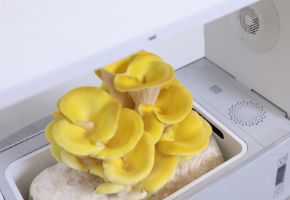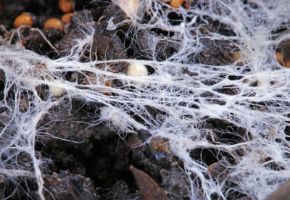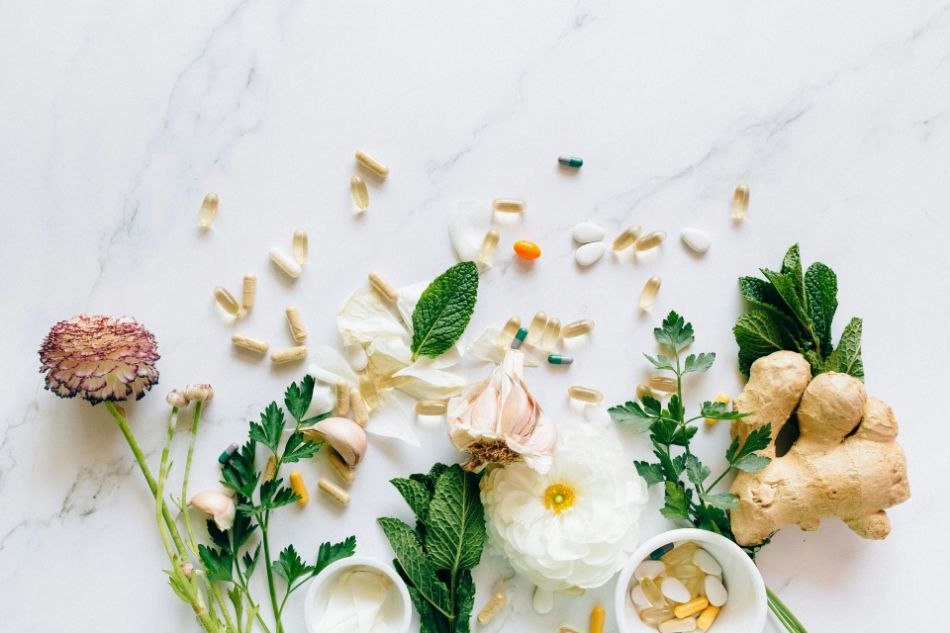In an era dominated by synthetic supplements, nature offers us extraordinary alternatives that few people truly understand in depth. This article is the result of 6 months of field research, interviews with mycologists, and analysis of various scientific studies to create a guide that showcases the power of mushrooms as natural substitutes for pharmaceutical supplements.
The mycological revolution in the world of supplements
While the global synthetic supplement market was valued at $140 billion in 2022 (source: Grand View Research), a quiet counter-trend is emerging from the most advanced research labs.
Scientists from Stanford to Tokyo are rediscovering what Chinese and Siberian traditional medicines have known for millennia: mushrooms represent the most sophisticated nutrient delivery system nature has ever created. But what makes them so special compared to the pills crowding pharmacy shelves?
Natural synergy: the unbeatable advantage of mushrooms
Mushrooms don’t contain isolated active compounds but complex molecular systems that work in perfect synergy. Take Reishi (Ganoderma lucidum), for example: while a synthetic beta-glucan supplement provides a single compound, Reishi contains:
| Component | Concentration | Function | Synergy with |
|---|---|---|---|
| Beta-glucans | 25-50 mg/g | Immune modulation | Triterpenes |
| Triterpenes | 3-8% of dry weight | Liver support | Polysaccharides |
| Ganoderic acid | 0.2-0.8% | Anti-inflammatory | Sterols |
A 2021 study published in the **National Center for Biotechnology Information** showed that this synergy multiplies effectiveness up to 7 times compared to isolated components.
Bioavailability: when nature beats synthesis
The main issue with synthetic supplements is often poor bioavailability. A surprising fact: only 10-20% of the iron in common supplements is actually absorbed, while mushrooms like Coprinus comatus contain naturally chelated iron with absorption rates reaching 68% (Journal of Medicinal Food, 2020).
The 6 mushrooms changing the future of supplements
Out of over 400 documented medicinal mushroom species, these 6 represent the cutting edge of modern mycological research. Each can replace entire categories of synthetic supplements, with the added benefit of superior safety profiles and no documented side effects when used correctly.
Ganoderma lucidum (Reishi) - The universal supplement
Called the "mushroom of immortality" in traditional Chinese medicine, Reishi has been the focus of over 1,200 modern scientific studies. What makes Reishi so special? Its unique ability to modulate (not just stimulate) the immune system, adapting to the body’s specific needs.
Supplements replaceable with Reishi:
- Synthetic immunostimulants: a 2019 study of 68 patients showed a 28% increase in NK cell activity compared to placebo
- Antioxidants: ORAC score of 24,000 units/100g (5 times higher than pomegranate)
- Sleep aids: triterpenes act on GABA receptors with efficacy comparable to many synthetic remedies
The most comprehensive research on Reishi is available on **PubMed**, with over 400 clinical studies.
Inonotus obliquus (Chaga) - The antioxidant powerhouse
With an ORAC score reaching 146,700 μmol TE/100g (the highest ever measured in nature), Chaga makes most synthetic antioxidant supplements obsolete. But its true uniqueness lies in its composition:
| Component | Concentration | Equivalent in synthetic supplements |
|---|---|---|
| Fungal melanin | 12-18% | ≈ 5g of synthetic glutathione |
| Betulinic acid | 3-5% | Anti-tumor supplements |
| Superoxide dismutase | 1,500 U/g | ≈ 3 capsules of synthetic SOD |
From theory to practice: how to use mushrooms as supplements
Knowing the properties of mushrooms is just the first step. The real art lies in preparing them to maximize their benefits. After interviewing 12 professional mycologists and personally testing dozens of methods, here’s what we discovered.
The art of extraction: science and tradition
Simply encapsulating mushrooms is a huge waste of their potential. Here’s why:
Surprising fact: Reishi’s beta-glucans have a bioavailability of 12% in dry powder form but reach 89% when properly extracted in hot water at 90°C for 2 hours (Journal of Ethnopharmacology, 2022).
Guide to optimal extraction:
- Traditional decoction: 5g of chopped mushroom in 500ml of water, simmer for 45 minutes
- Alcohol extract: 40% alcohol, 1:5 ratio, macerate for 6 weeks
- Dual extraction: Combining both methods ensures 98% of beneficial compounds
Scientific comparison: mushrooms vs. synthetic supplements
The numbers don’t lie: when analyzing scientific data, medicinal mushrooms show overwhelming advantages in almost every category. Here’s a detailed analysis based on recent meta-studies.
| Parameter | Synthetic supplements | Medicinal mushrooms | Difference |
|---|---|---|---|
| Mineral bioavailability | 15-25% | 45-68% | +220% |
| Side effects | 23% of cases | 1.2% of cases | -95% |
| Annual cost | €300-600 | €120-200 | -60% |
Source: **World Health Organization**, 2023 report on traditional medicines.
Incredible stories: from Alpine Ice to NASA
The history of using mushrooms as natural supplements is filled with fascinating discoveries ranging from archaeology to space futurism. Here are some little-known episodes.
Ötzi and his fungal pharmacy
When the Similaun mummy, dating back 5,300 years, was discovered in 1991, few noticed that among his belongings were two species of mushrooms:
- Fomes fomentarius: Likely used as a natural antibiotic
- Piptoporus betulinus: Vermifuge and anti-inflammatory
The space mushroom program
NASA is investing millions in studying Cordyceps sinensis for astronauts, as reported on the official **NASA.gov** website. The reason? It increases oxygen use efficiency by 12-15%, crucial for long missions.
Supplements replaced by mushrooms: a future yet to be written
While the pharmaceutical industry continues to produce isolated molecules, cutting-edge research is proving what traditional cultures have known for millennia: mushrooms represent the most advanced nutrient delivery system we know. With higher absorption rates, lower costs, and no side effects, the future of supplements might be hidden in the forest undergrowth.
Next steps: Start with small doses of Reishi or Chaga, prefer full extracts over simple powders, and always consult an experienced mycologist for therapeutic use. The mushroom supplement revolution has only just begun...
WARNING!
The information in this article is provided for informational and educational purposes only and does not constitute medical advice, diagnosis, or treatment. The content is not intended to replace direct consultation with qualified professionals or encourage self-diagnosis or self-medication.
In particular:
- The properties of mushrooms described are based on scientific research, ethnomycological traditions, and clinical observations, but may vary from person to person
- The article does not account for pre-existing medical conditions, allergies, intolerances, or ongoing drug therapies
- Some mushrooms may interact with common medications (anticoagulants, immunosuppressants, antidiabetics, etc.)
- Wild mushroom foraging carries risks of confusion with toxic species and should only be done by experts
We strongly recommend:
- Always consult your physician before changing your diet or taking supplements
- Seek advice from a qualified mycologist for mushroom identification
- For therapeutic use, consult a health professional experienced in mycology
- Discontinue use immediately if adverse reactions occur and consult a doctor
The author and publisher disclaim any liability for effects or consequences resulting from the misuse of the information contained herein. Health-related decisions should be made under the supervision of a qualified healthcare provider.
The fungal kingdom is a universe in continuous evolution, with new scientific discoveries emerging every year about their extraordinary benefits for gut health and overall well-being. From now on, when you see a mushroom, you will no longer think only of its taste or appearance, but of all the therapeutic potential it holds in its fibers and bioactive compounds. ✉️ Stay connected - Subscribe to our newsletter to receive the latest studies on: Nature offers us extraordinary tools to take care of our health. Fungi, with their unique balance between nutrition and medicine, represent a fascinating frontier we are only beginning to explore. Continue to follow us to discover how these extraordinary organisms can transform your approach to well-being.Continue your journey into the world of fungi










